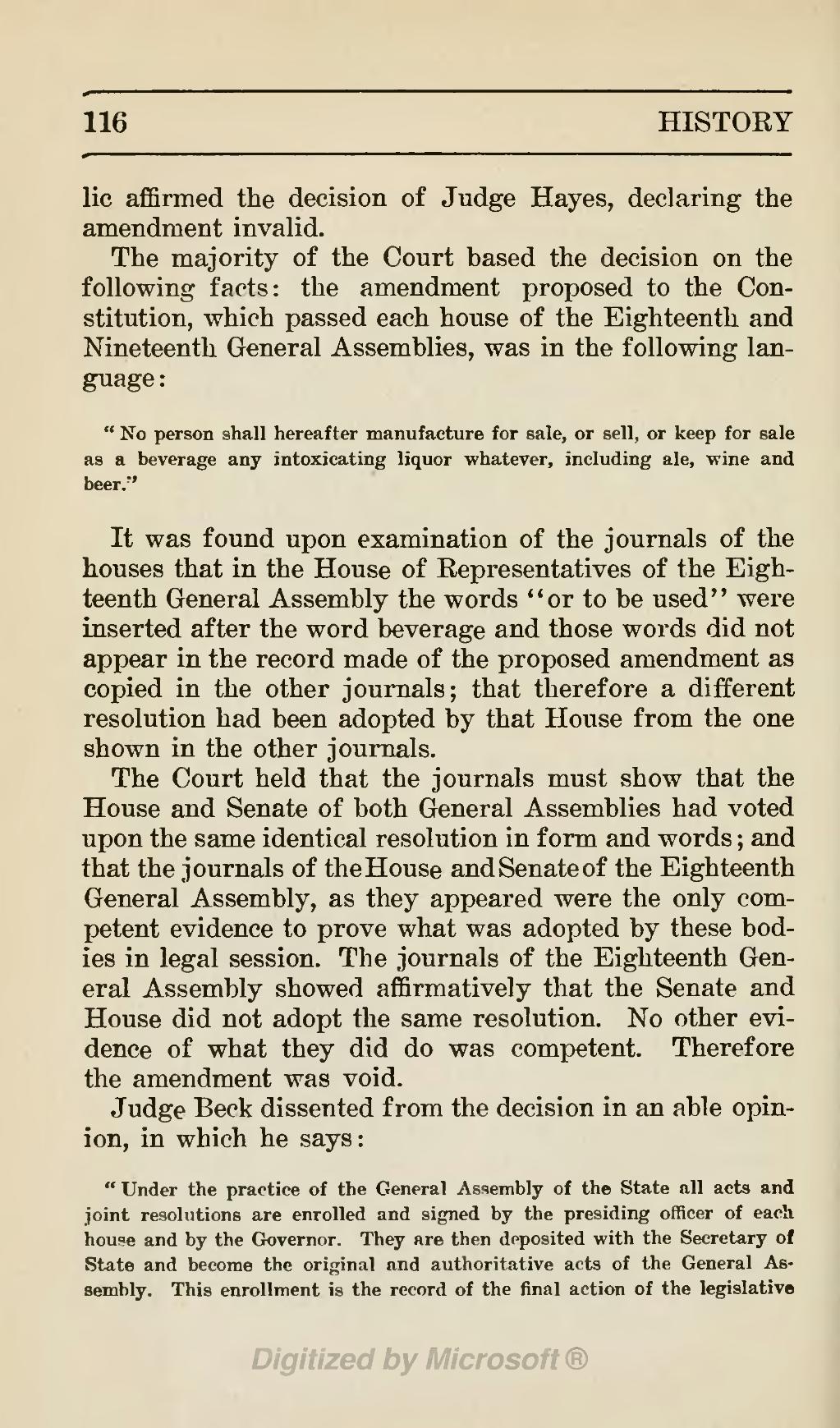lic affirmed the decision of Judge Hayes, declaring the amendment invalid.
The majority of the Court based the decision on the following facts: the amendment proposed to the Constitution, which passed each house of the Eighteenth and Nineteenth General Assemblies, was in the following language:
“No person shall hereafter manufacture for sale, or sell, or keep for sale as a beverage any intoxicating liquor whatever, including ale, wine and beer.”
It was found upon examination of the journals of the houses that in the House of Representatives of the Eighteenth General Assembly the words “or to be used” were inserted after the word beverage and those words did not appear in the record made of the proposed amendment as copied in the other journals: that therefore a different resolution had been adopted by that House from the one shown in the other journals.
The Court held that the journals must show that the House and Senate of both General Assemblies had voted upon the same identical resolution in form and words; and that the journals of the House and Senate of the Eighteenth General Assembly, as they appeared were the only competent evidence to prove what was adopted by these bodies in legal session. The journals of the Eighteenth General Assembly showed affirmatively that the Senate and House did not adopt the same resolution. No other evidence of what they did do was competent. Therefore the amendment was void.
Judge Beck dissented from the decision in an able opinion, in which he says:
“Under the practice of the General Assembly of the State all acts and joint resolutions are enrolled and signed by the presiding officer of each house and by the Governor. They are then deposited with the Secretary of State and become the original and authoritative acts of the General Assembly. This enrollment is the record of the final action of the legislative
